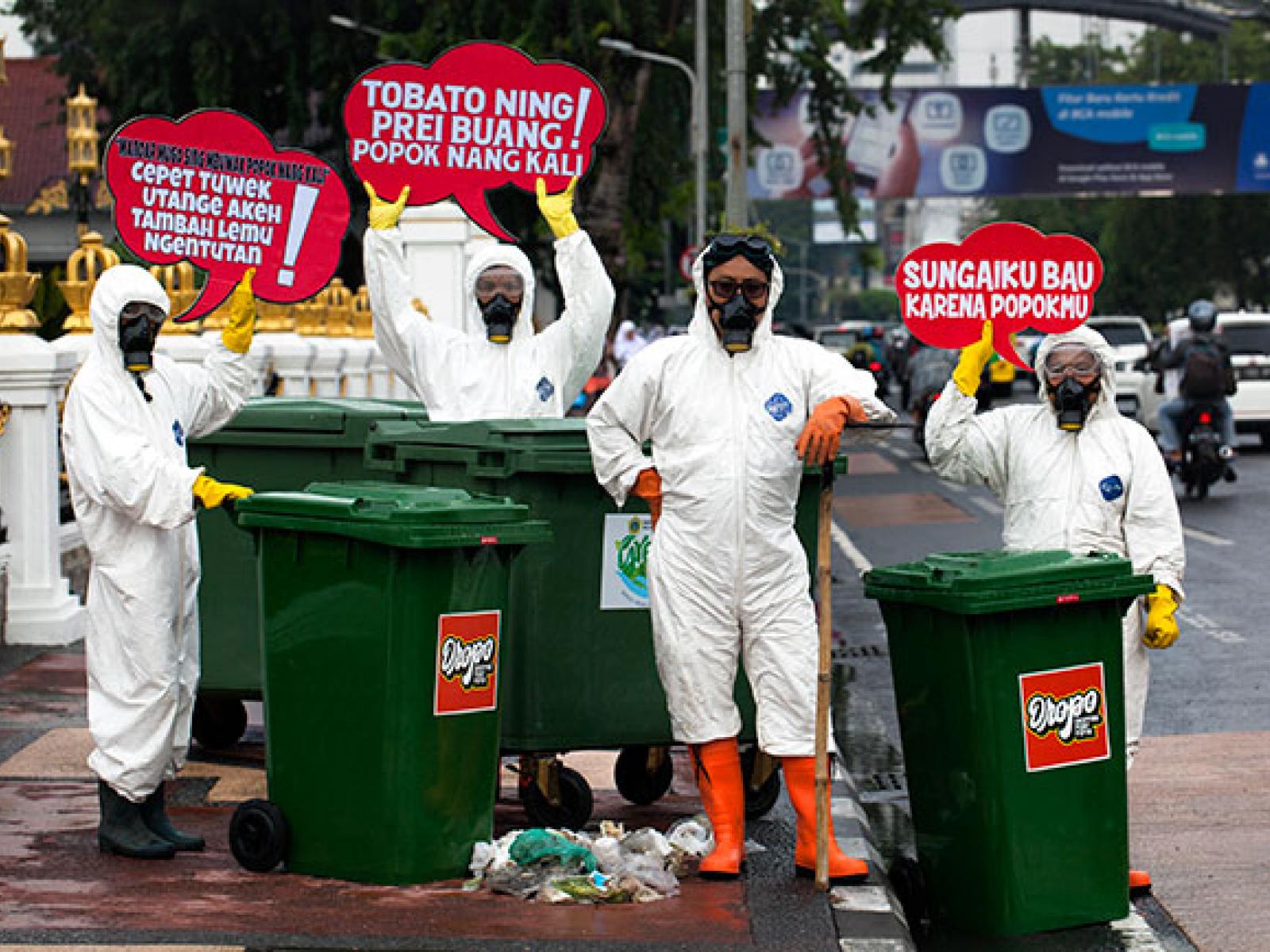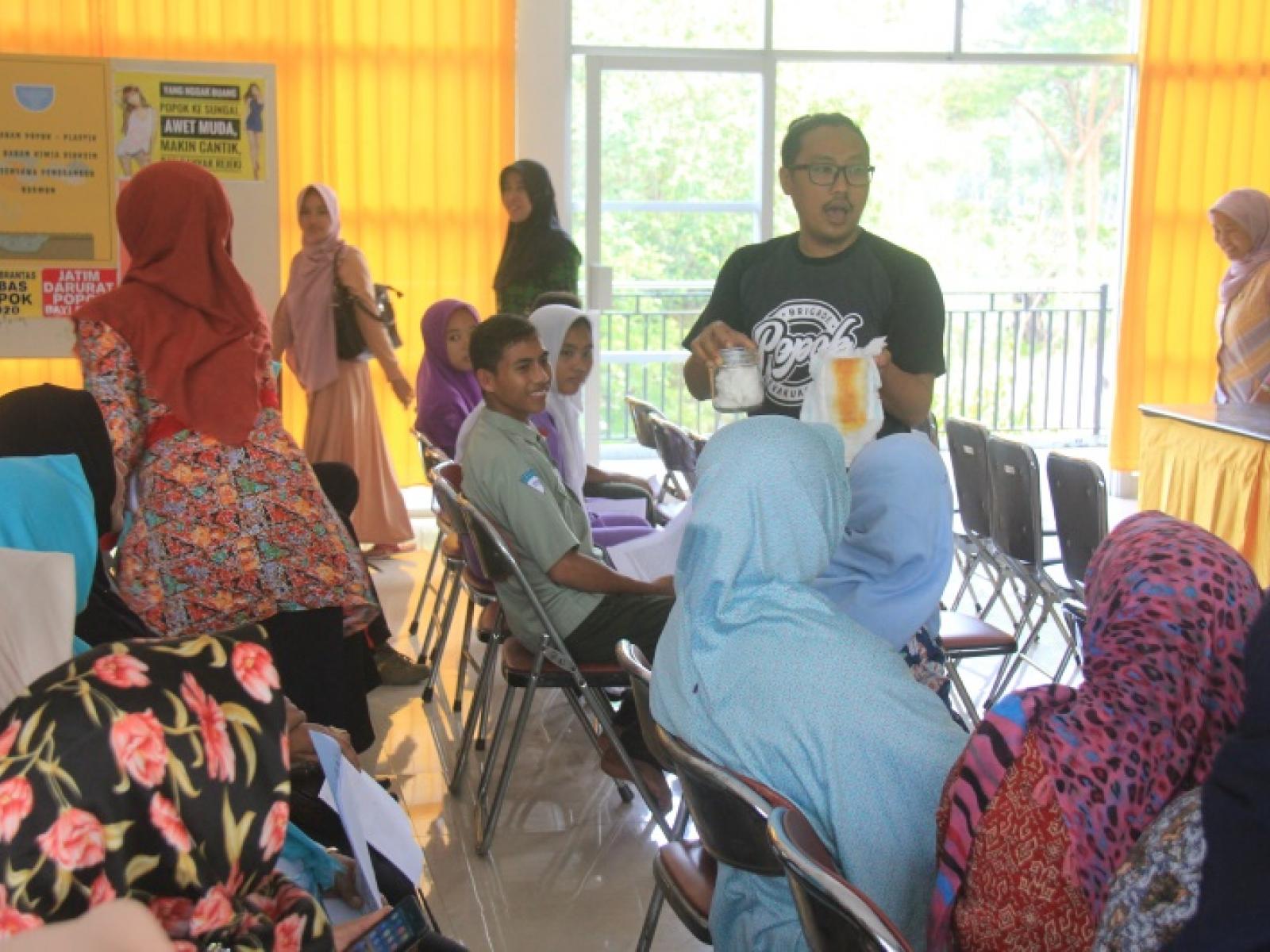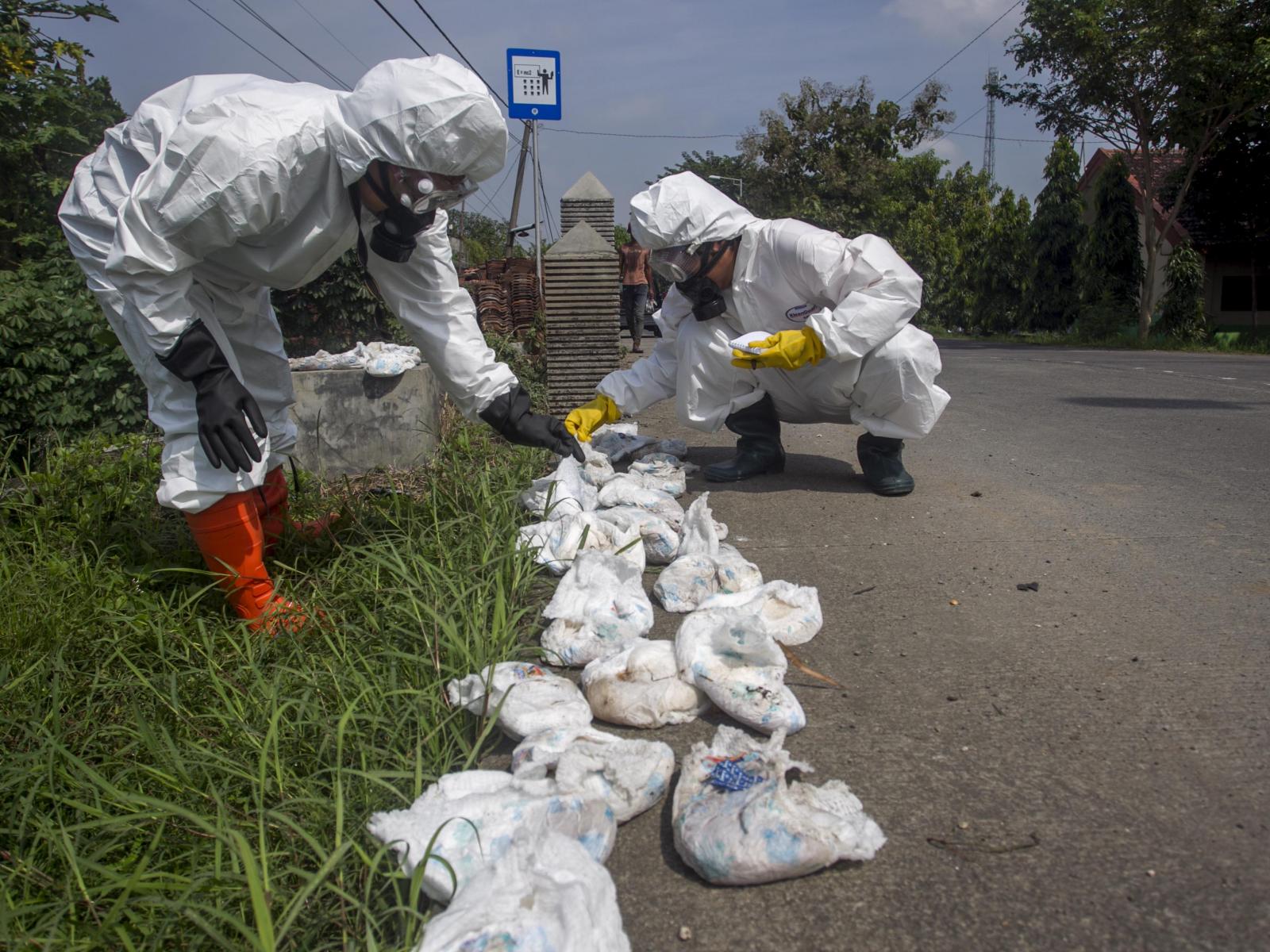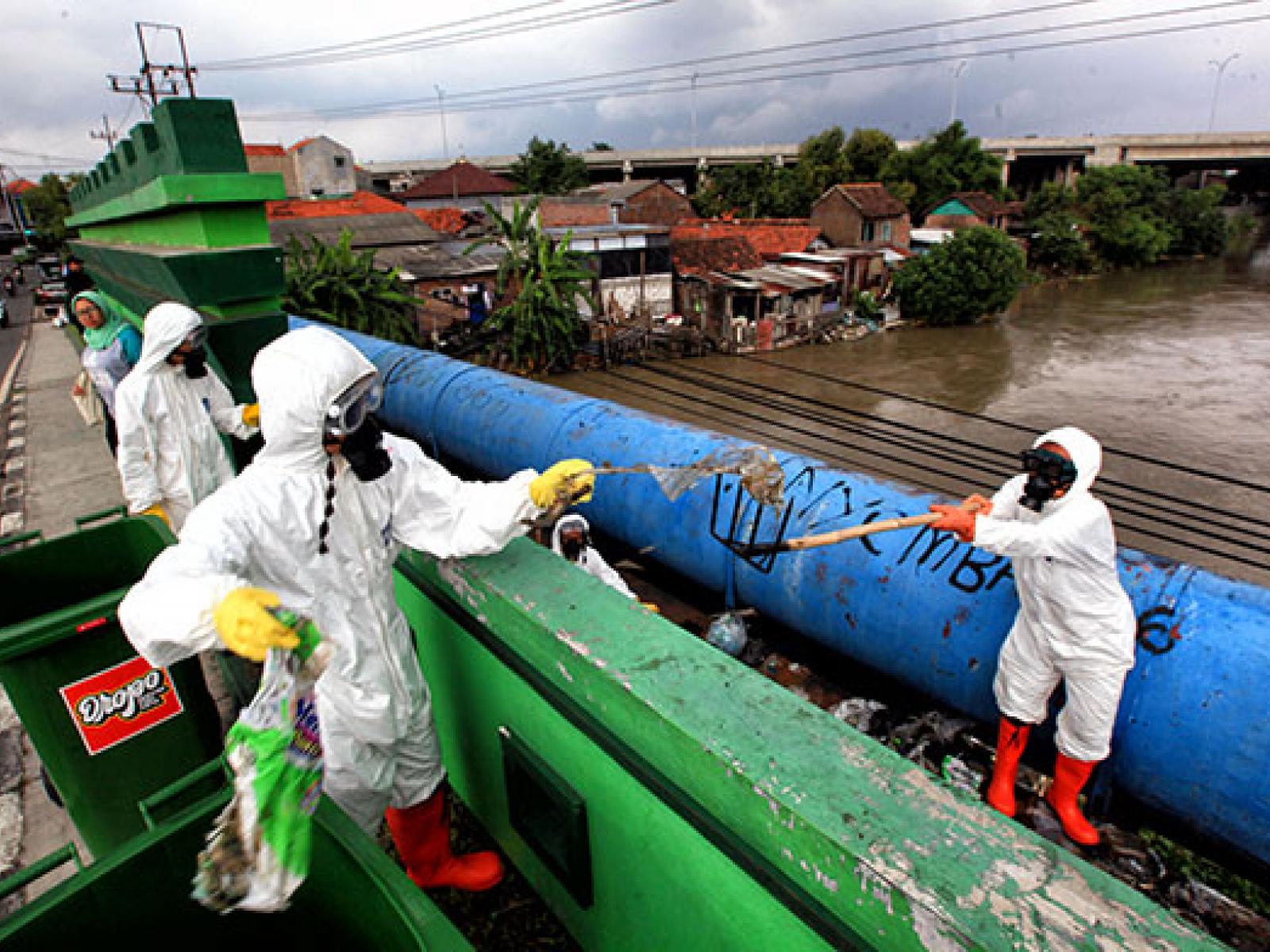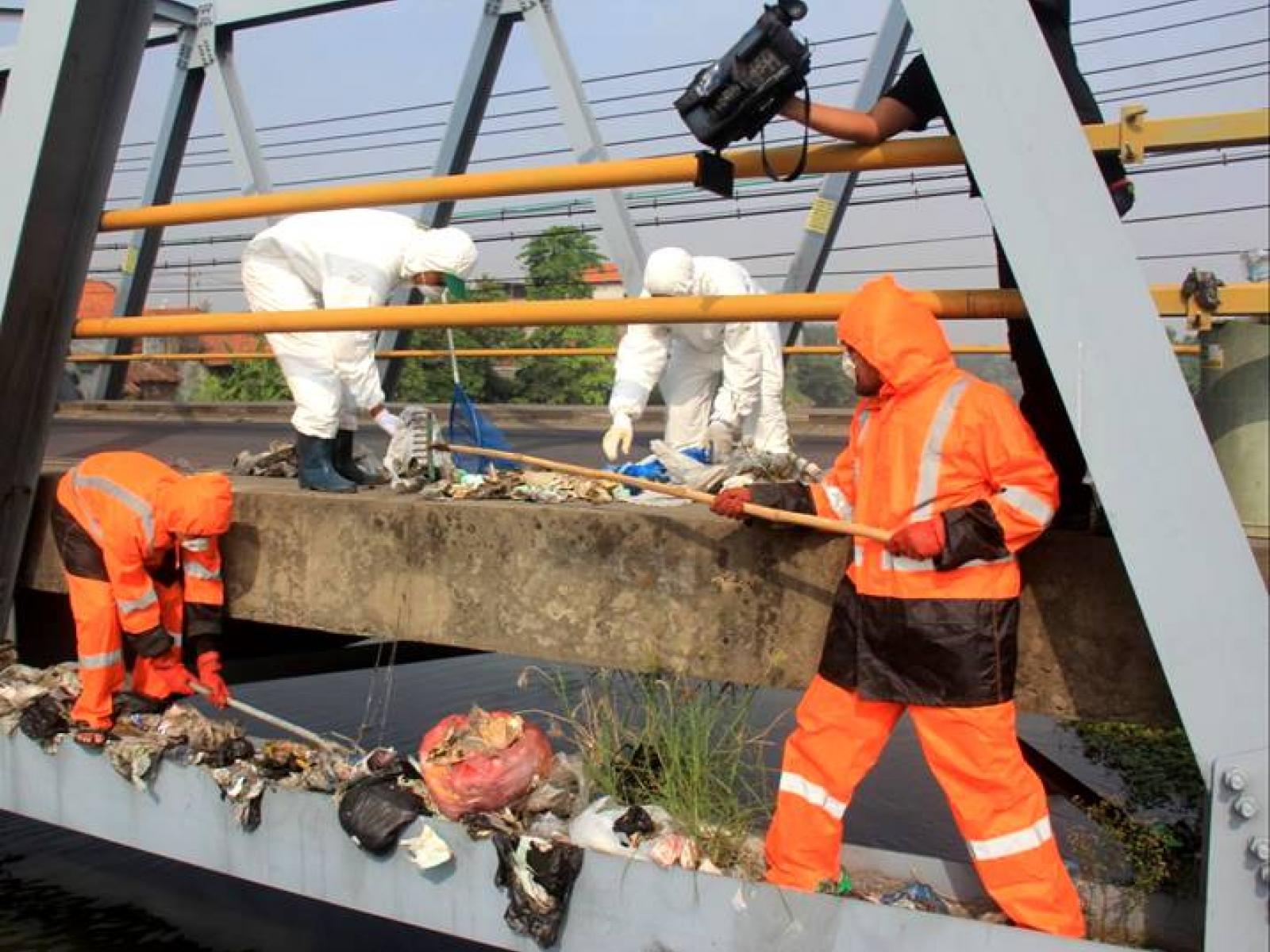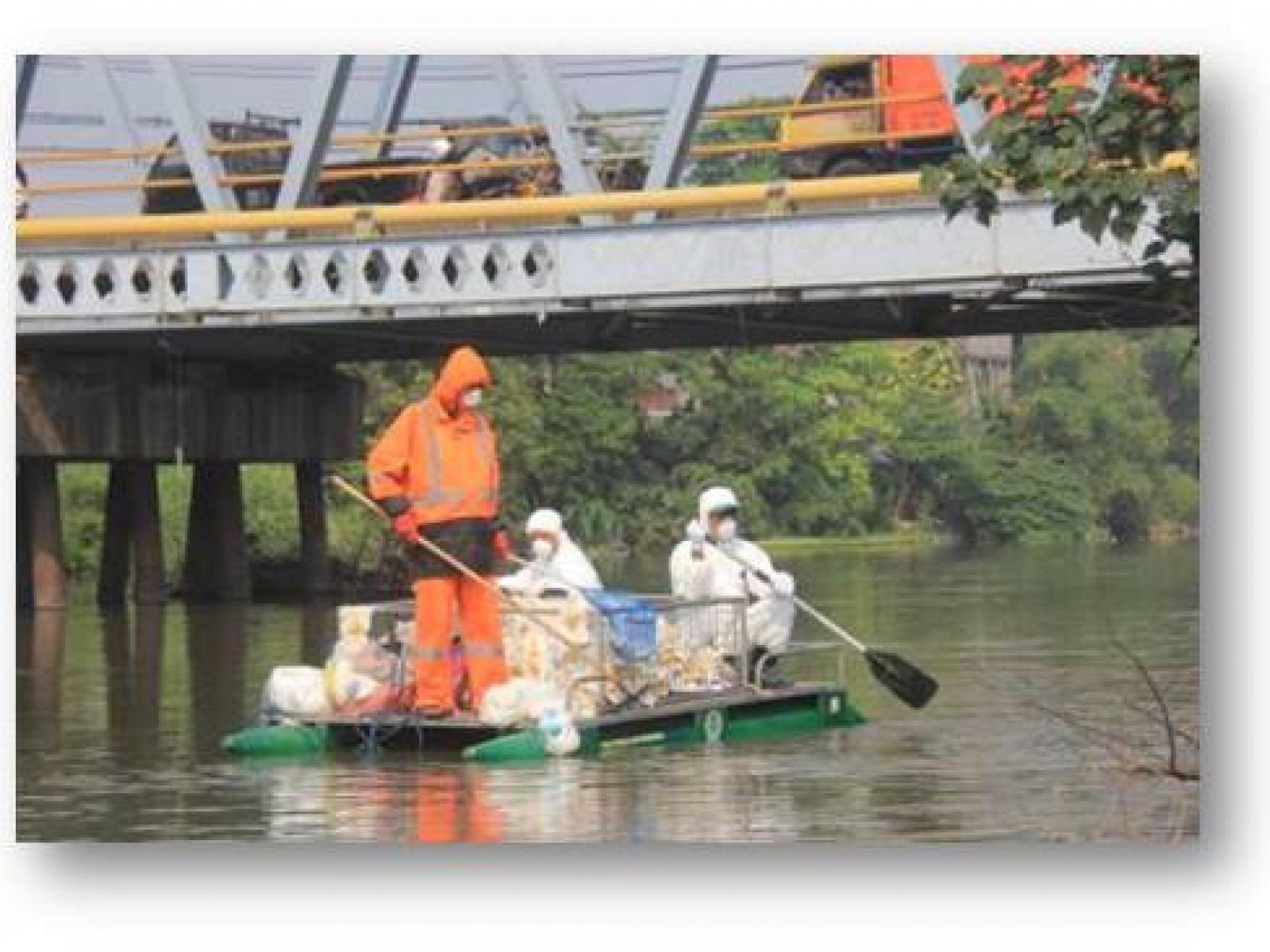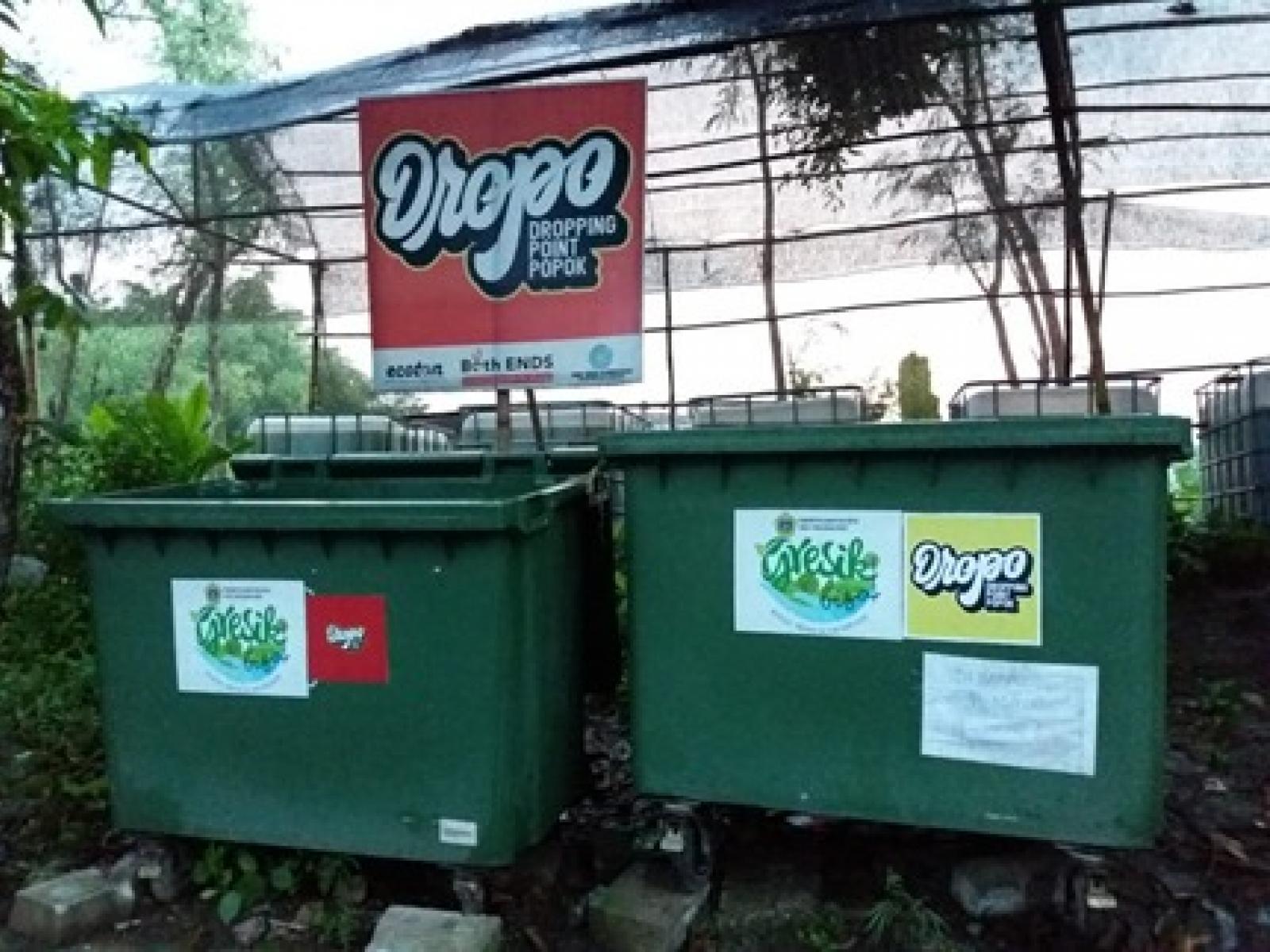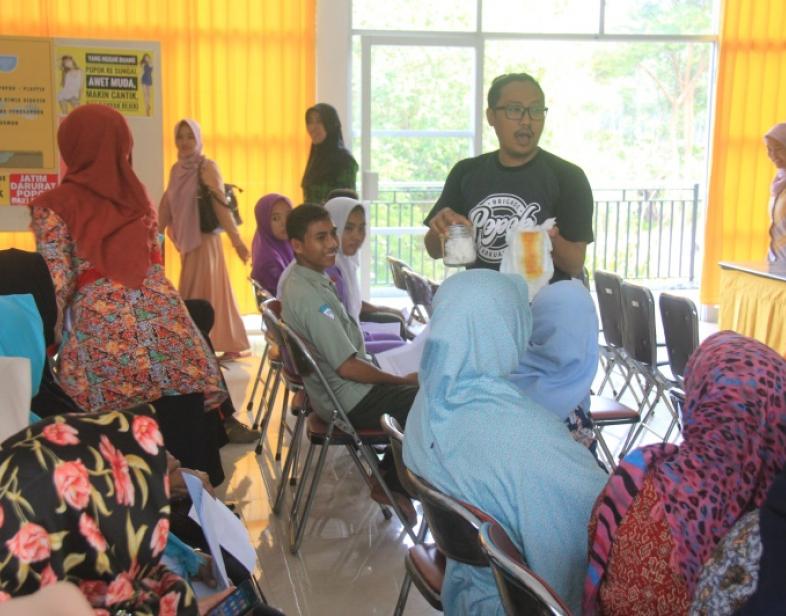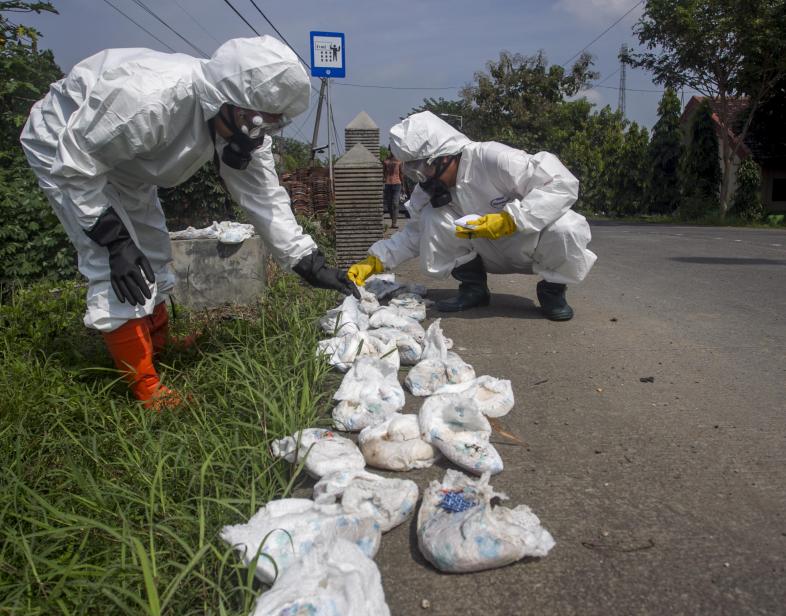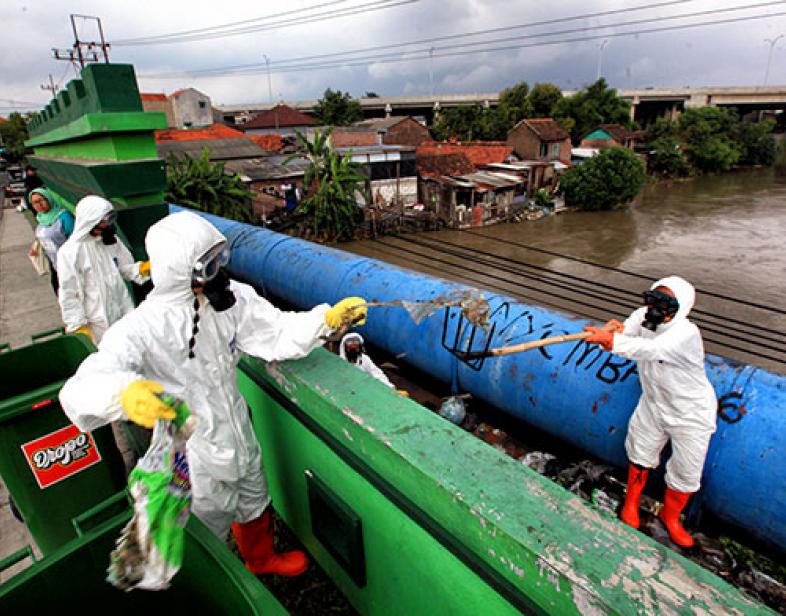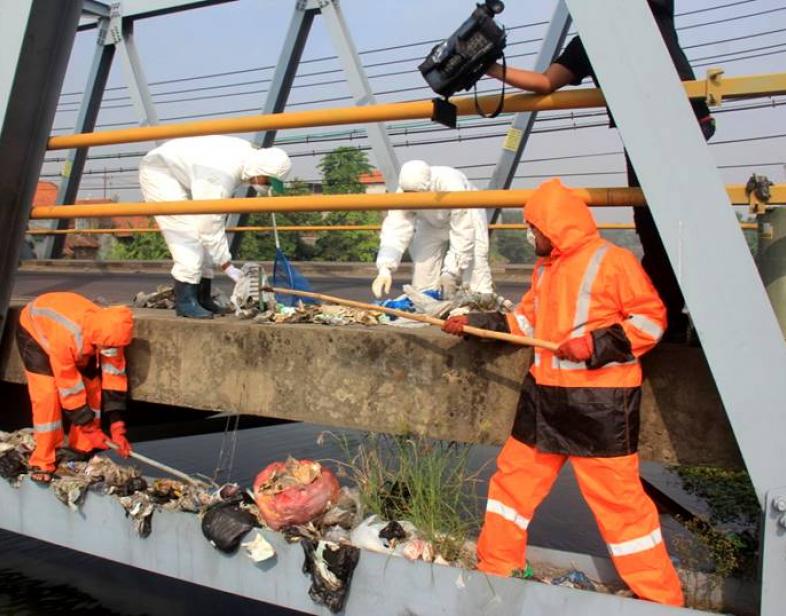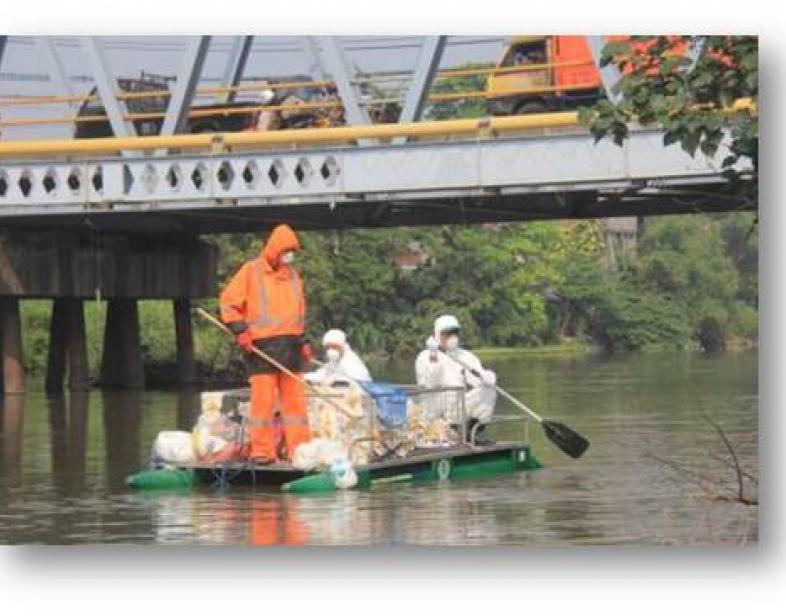An Overview Of Our Solution
We reduce the amount of diaper waste that enters the river by providing special disposable diaper waste containers (Droppo: Drop point diapers), Conducting training on diaper waste management systems, environmental and human health impacts, advocating for disposable diaper producers and encouraging movement the use of cloth diapers, making the women's community to produce cloth diapers, cloth diaper credit and cloth diaper laundry. This activity will partner with the women's community and volunteer diapers hunters along the Bengawan Solo River .
- Population Impacted: 100 Volunteers and Aquaculture (fisherpond) downstream of Bengawan Solo A total of 8,265 households.
- Continent: Asia
背景分析
The Bengawan Solo River is located in the provinces of Central Java and East Java, passing through 23 regencies / cities with a river length of 600 km. The amount of Diaper Trash in the river is a problem. This is strengthened by the waste services in Indonesia that only cover 30%, while the remaining 70% is thrown away. According to world bank data in 2019, 21% of waste in 15 cities is baby diapers.
the downstream part of the river will pass Gresik Regency, which is the center offish production in Indonesia. around 39,545 tons per year. As for the area of 32,000 hectares of pond land, around 8,265 households who depend on their livelihood from aquaculture ponds.
描述您希望目标受众采用的技术解决方案。
- Provision of Special Disposable Diapers Waste Containers on the riverbanks of the Bengawan Solo River.
- Training for volunteers and women's community
- Campaign Cloth diaper wearing movement (Diaper Evacuation and Audit of diaper brands).
- Inventory of diapers and making a hotspot of the distribution of diaper waste in the River
- Advocating for disposable diaper producing companies.
描述你的行为干预。
- Dissemination related to the use of special diapers waste containers related to procedures before disposing of diapers in containers and reporting when the containers are full.
- Training on inventory steps, evacuation, brand audits and how to create a hotspot for the distribution of diaper waste in the Bengawan Solo River.
- Cloth Diapers credit as an effort for economic growth for the women's community and reducing the use of disposable diapers in the Bengawan Solo River area.
(For the women's community, 10 pieces of cloth diapers are given. Through this cloth diaper credit, people can easily get cloth diapers with the interest-free cloth diaper credit system. 1 person will get 10 pieces of cloth diapers, the payment of which can be made 10 x payments)
- Sending a letter of complaint to a company that produces disposable diapers to provide guidance and handling of disposable diaper waste to the community.
使用的行为杠杆
如需要,请更详细地解释你是如何使用杠杆的。
In using the lever in more detail, we encourage advocacy through social media:
- Creating a vlog about the conditions of Solo Solo.
- Infographics
- Photo of the condition of the Bengawan Solo river.
- Upload social media hashtag #SungaiBengawanSoloBebasPopok
描述项目的实施。
A. KNOWLEDGE
Training (Diapers Hunter Academy) for volunteers and women: This training will provide training for community volunteers and women about :
- Waste management system according to Law 18/2008 on waste management.
- The health impacts of plastics and disposable diapers on humans.
- The impact of disposable diapers on rivers and Regarding the river ecosystem and health.
B. SKILL
Inventory of diaper generation and making maps of diaper generation in the Bengawan Solo River and Campaign (evacuation, action and Brand Audit)
C. ATTITUDE
Provision of Special Diaper Garbage Containers ( Droppo - Drop point diapers ) and Information Board and Cloth Diaper Credit
描述项目的主导者。谁在主导项目实施?
The leadership of the organization consists of young men and women from the Diapers Evacuation Brigade community. In addition, we collaborate with researchers and students from universities in Indonesia for data collection (Microplastic Contamination), also the main researcher is one of the Senior Environmental Biology Researchers at Airlangga University and Researchers at Diponegoro University.
分享参与解决方案开发和实施的关键合作伙伴。
A. Partners involved in development:
- Local Community
- Environmental Protect Agency
- Airlangga University
- Zero Waste Indonesia Alliance (AZWI)
B. Forming multi-sector collaborations between the Government, BUMN, companies producing disposable diapers and communities to encourage good environmental management. Those who are members of the collaboration include: BBWS Bengawan Solo, PJT 1, Ministry of Environment and Forest, Disposable Diaper Manufacturing Company.
谁采用了期望的行为,采取的程度如何? 解释一下你如何测量行为变化的。
Adopting Behavior : Community of women and trainees / volunteers who are members (Diapers Hunter Academy) .
To measure behavior change : The results of the inventory and distribution of diaper waste generation in the Bengawan Solo River which will be updated every month.
项目是如何影响水污染的?请详细说明并包括相关的测量方法。
In our calculations at the Brantas River location, the program for placing a special diaper waste container (Droppo: Drop point diapers) is very efficient to reduce and affect water pollution. explained in our research with the existence of a special diaper waste container in the Brantas River (Another River) we have implemented. 1 Piece The special diaper waste container ( Droppo: Drop point diapers ) can hold 3,260 pieces of disposable diapers weighing 700 quintals.
In our opinion, this is an indicator of success for reducing disposable diaper waste in the Bengawan Solo River, which is utilized by fish farming fisheries (pond) downstream.
您的解决方案如何促进平等(包括种族、性别、民族、社会阶层/收入,或其他)?
- Developing cloth diaper making and cloth diaper credit with the women's community.
- Collaborating with the community to monitor disposable diaper contamination and create a diaper distribution maps (hotspot) in the river.
社会和/或社区是如何受益的?
- Knowledge about waste management systems, Health Impacts for Humans, Environment and River Management.
- The establishment of a women's community network in 7 districts / cities.
环境是如何受益的?
- Reducing the amount of diaper waste in the Bengawan Solo River.
- The Bengawan Solo River is free of Diapers waste
- Fisherpond Aquaculture Waters (fish quality)
可持续发展如何得到促进?
Opening up opportunities to become a manufacturer or seller of cloth diapers and laundry cloth diapers as a source of income and job opportunities for women's and the community.
可持续性:描述你的解决方案的经济可持续性。
The economic sustainability in this project is the formation of a women's group that will manage in making and selling or credit cloth diapers whose income can be used for investment and sustainability, and then used for community development or volunteers in carrying out diaper-free river actions and campaigns.
This project does not depend on grant funding, but adds to the government subsidy (environmental service) related to the transportation and pickup of special diaper containers to the Landfill.
投入产出:实施这些活动的成本是多少?与你上面的结果相比,你的结果如何 这投资吗?
To carry out this activity we cost USD 15.500 for the provision of 20 Pcs Dropo in 7 Districts / Cities, 20 Information Boards, 100 Cloth diapers and Training ( Diapers Hunter Academy ) in 7 Districts / Cities.
如何能将这个解决方案成功推广在其他地方?
We have carried out this project in the Brantas River Basin (East Java), We hope to build and implement the project in the Bengawan Solo River Basin, the longest river in Java Island which crosses 2 provinces with a length of 600 km (Central Java and East Java)
